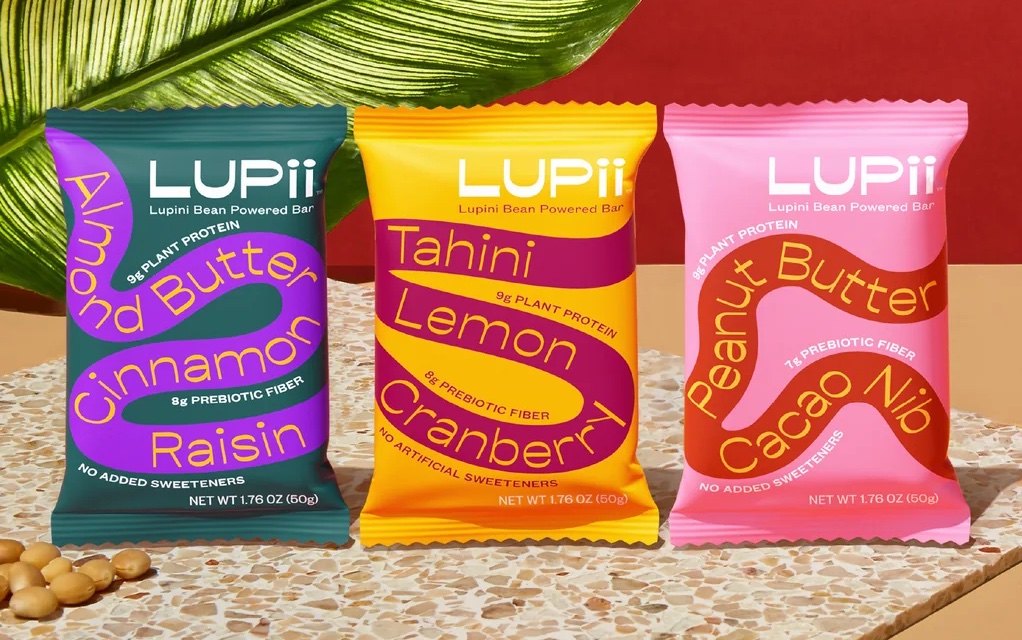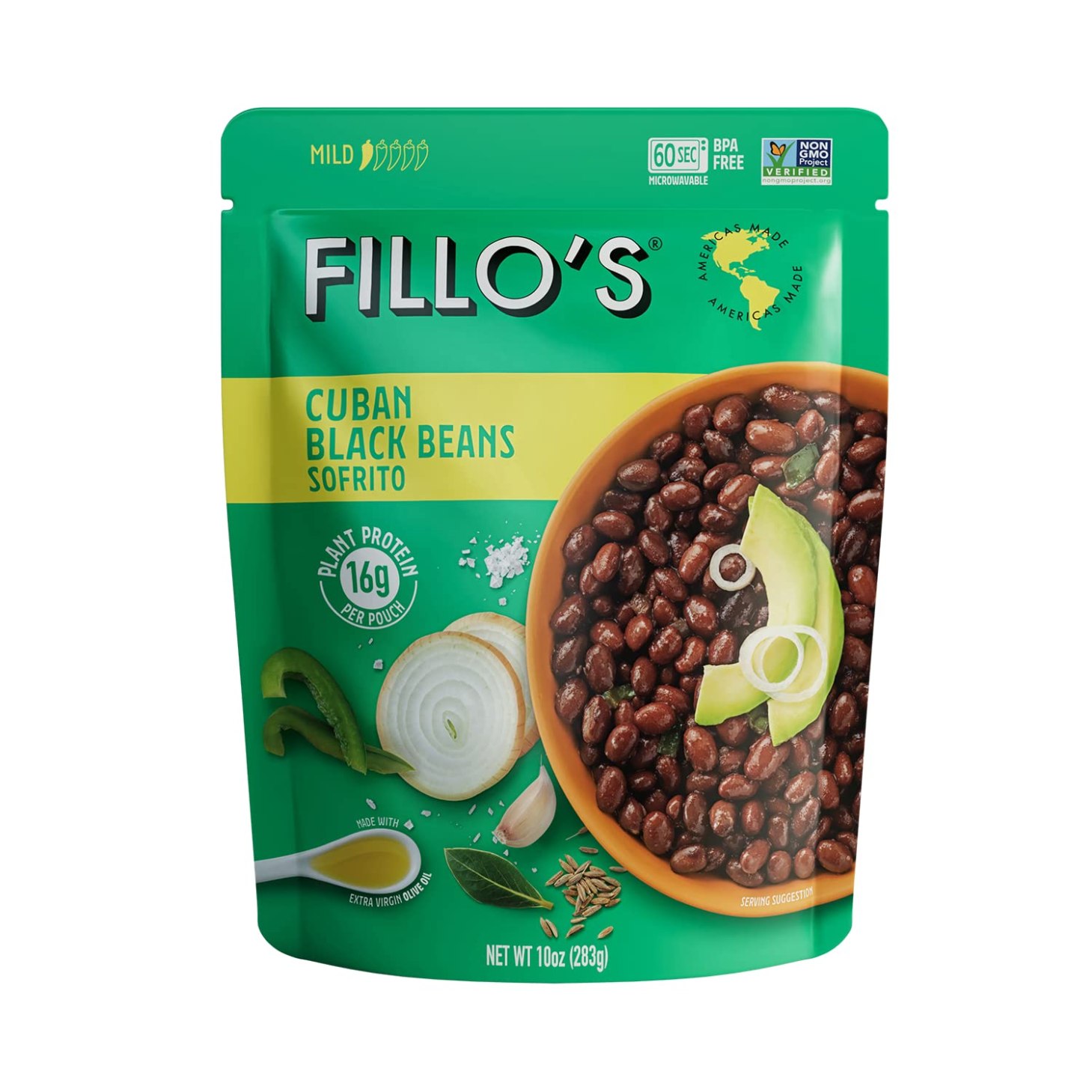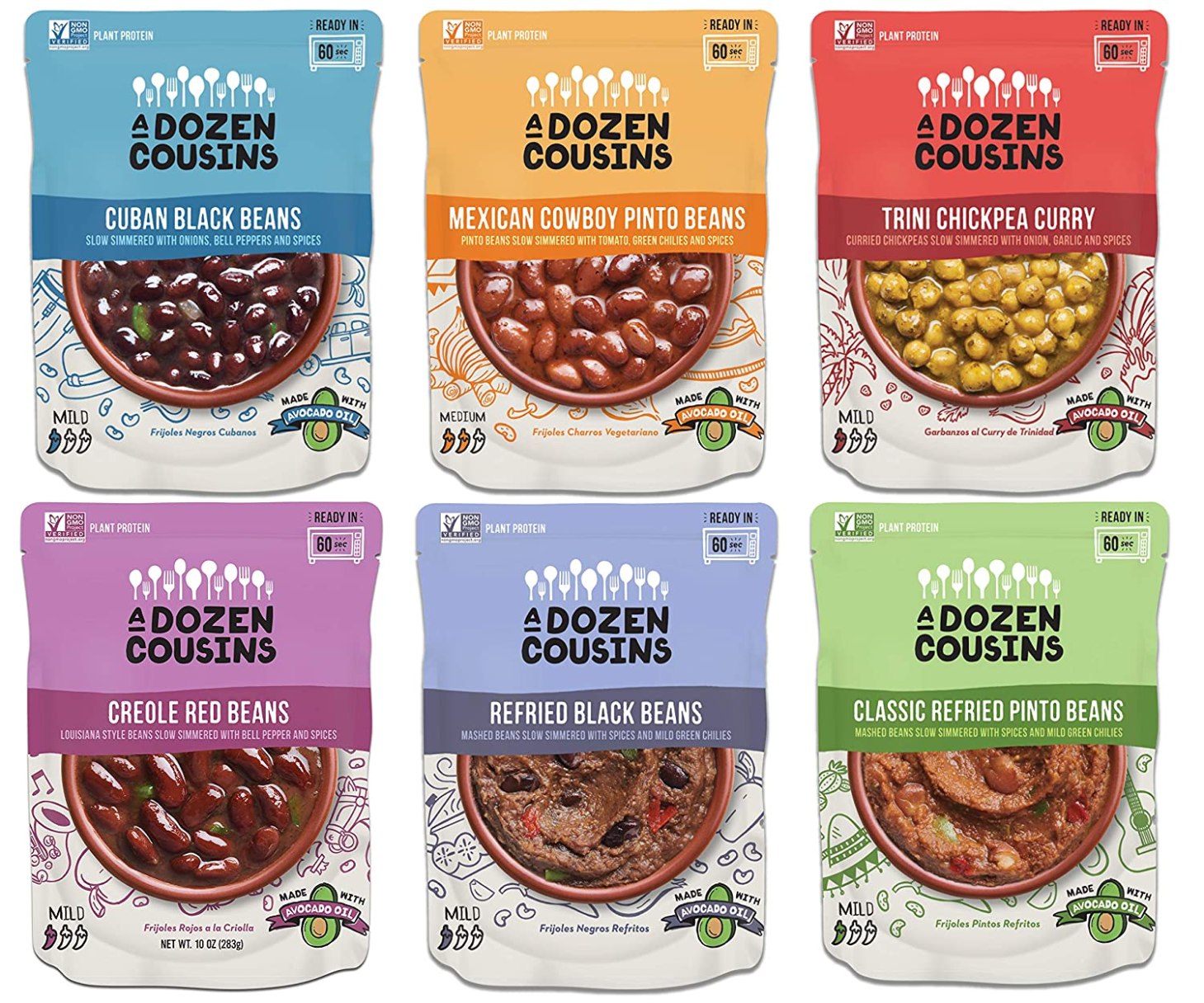Why Eating Beans Is One of the Easiest Ways To Boost Your Longevity
Why beans are good for longevity
Martin says it’s impossible to pin down a single benefit of beans most closely related to living longer. The macro-, micro- and phytonutrients in beans synergistically contribute to their positive effect on longevity. Here’s how that breaks down:
- Charlotte Martin, RDN, CPT, registered dietitian based in Baltimore and Washington, D.C.
- Kendra Gutschow, RDN
- Kimberley Rose-Francis, RDN, Hey there, I’m Kim. For close to a decade, I’ve had the pleasure of assisting others boost their overall health by teaching personalized nutrition skills. I’ve always believed why give a man or woman a fish, when you can teach him how to actually fish? My mission is to guide others to become more educated and aware of how to navigate their health issues. Nutrition is an important element of all aspects of health and I know what it feels like to be out of your element. In my practice I’m dedicated to helping you find what works for you by providing evidenced-based resources and working with you and your loved ones to reach your nutrition goals. Therefore, it’s not uncommon to receive an email, text message, and postcard from me to encourage you on your health journey.
- Louisa Paine, RDN, Louisa Paine, RDN is a registered dietitian with ZOE.
1. Beans are high in fiber
This quality impacts weight management through a variety of mechanisms, says Martin. “Maintaining a high amount of fiber in your diet is a key factor when it comes to longevity,” she adds, as fiber intake is associated with decreased risk of many chronic diseases, including cardiovascular disease, type 2 diabetes, and certain cancers. In addition to helping to fill you up by providing bulk and slowing digestion, some of the fiber in beans also functions as a prebiotic, says Martin. This means it serves as food for beneficial gut bacteria, encouraging their production of short-chain fatty acids.
{{post.sponsorText}}
2. Beans are nutrient-dense
Rich in folate, zinc, and potassium, among other micronutrients, beans provide protein without some of the drawbacks that can come along with animal-based protein sources, says Louisa Paine, RDN at ZOE. She adds that studies show eating beans appear to be correlated with lower risk of chronic inflammation, heart disease, and some types of cognitive decline.
3. Beans promote a healthy gut microbiome
Because beans are a fiber-rich, whole plant food, they are likely to help promote a balanced, healthy gut microbiome, which in turn supports processes in many of the body’s systems, says Paine. “This may be one of the mechanisms that makes beans so healthy and good for longevity,” she adds.
4. Beans are satiating and are a good source of resistant starch
Thanks to their high fiber and protein content, beans tend to be filling and take longer for your body to digest. These qualities mean that eating beans can help stabilize blood sugar and keep you feeling satisfied long after a meal, says Kendra Gutschow, RDN, Noom Coach. The resistant starch in beans can help keep regulate blood sugar spikes. This is an especially important attribute of beans for people who have diabetes, says Kimberley Rose-Francis, RDN.
5. Beans are a staple among those who live longest
One of the common factors among residents in Blue Zones throughout the world is a high intake of beans, says Paine. And according to Blue Zones’ founder Dan Buettner, various types of beans including fava beans, black beans, soy beans, and lentils are the cornerstone of most centenarian diets. This means that the longest-living populations tend to enjoy a lot of beans and reap their protective benefits. In a 2020 lecture, Buettner went so far as to suggest that eating a cup of beans daily could extend your life expectancy by four years.
Health benefits of dried vs. canned beans
Nothing beats the convenience of canned beans. But if you’re trying to save money on groceries, dried beans are significantly cheaper per serving and can even come out tastier and with a better texture than their canned counterparts, says Martin. Nutrition-wise, both canned and dried beans are similar, but canned can be filled with excess salt (and even added sugar). This is an important factor to watch out for when buying beans, as it can detract from their overall health benefits. “Eating too much sodium is not ideal for overall heart health since it can raise blood pressure levels,” says Rose-Francis.
While dried beans have only a small amount of natural sodium, you’ll need to plan ahead if you’re wanting to make them, as most require soaking for an extended period or even overnight before cooking. A pressure cooker can also be a great way to cook beans, says Gutschow.
When making beans as a side, she recommends adding in sauteed onion, garlic, and other seasonings to match the flavor profile of your main dish (i.e., cumin for Mexican, basil and oregano for Italian, or turmeric for Indian curry). You can also serve beans as an entrée paired with vegetables and whole grains for an even more nutrient- and fiber-rich meal, says Paine. Aside from added salt, there’s no one kind of bean that promotes significant health benefits over others.
Like so much else in life, variety is the spice when it comes to enjoying them. “It’s ideal to feed your microbiome a variety of plants, including different types of beans,” says Paine. “This dietary diversity will help your microbiome to have a more diverse population of microbes, so mix it up as often as you can.”
How to eat more beans
The serving size for beans is 1/2 cup, says Martin. Nutrition varies slightly depending on the variety, but one serving of black beans, for example, contains 120 calories, 8 grams of protein, 22 grams carbohydrates, and 9 grams of fiber. If you’re not already eating beans regularly, Paine recommends starting small: Try a tablespoon or so a day and work your way up over the next few weeks. “This approach will give your digestive system and gut microbes a chance to get used to the beans and reduce the risk of side effects such as gas,” she adds.
Some of the healthiest ways to enjoy beans at home include:
- Adding beans to soups, stews, and chilis
- Swapping out half the meat in a recipe (such as a Bolognese sauce or tacos) for beans
- Using pureed white beans as a sandwich spread
- Substituting pureed white beans for milk or cream in a creamy soup recipe
- Roasting chickpeas with a little olive oil and seasonings until crispy to enjoy as a snack
- Pureeing cooked beans with spices to create a dip
- Layering beans in a grain bowl
You can even use beans to bake healthy desserts, like these delicious black bean brownies:
When buying beans, try to choose reduced-sodium or no-salt-added varieties if they’re available. This is true even if you’re planning to rinse the beans before using them, since rinsing won’t remove all of the sodium, says Martin.
While many recipes may call for using the entire can, discarding the liquid and rinsing beans before using them is a good idea because it helps both to lower their sodium content and reduce the chance they’ll cause gas (because you may recalls the tune about “musical fruit”). Rinsing is especially helpful for those who have IBS and may have trouble tolerating beans, says Martin.
Besides cooking your own dried beans, here are seven healthy bean products to try.

Whether they’re tucked into tacos, enchiladas, or burritos, enjoyed on their own as a side, or jazzing up a salad, these heat-and-eat beans are soft and sweet, cooked with only garlic, onion, and a little sea salt. They’re part of an incredibly delicious lineup from Mexico-born co-founders Miguel Leal and Rodrigo Zuloaga, who teamed up with KIND founder Daniel Lubetzky to launch the brand earlier this year. Pair with Somos’ plant-based entrees like Mexican Peacadillo (made with peas) and cilantro lime rice for a perfect taco dinner.

A protein bar made with beans? We know, we know—it sounds like an odd combination. But flavors like peanut butter cacao nib, almond butter cinnamon raisin, and tahini lemon cranberry are so satisfying and tasty, you’ll forget they’re made with beans. Each one contains 10 grams of protein and relies on whole foods like dates, nuts, and lupini beans (which have three times the protein of an egg and three times the fiber of oats) for their chewy texture. We’re sold on these no-added-sugar bars for a snack or even an on-the-go breakfast.

True to their name, these white beans are large and hearty, and pair perfectly with crisp asparagus, tender artichokes, and a creamy cauliflower-chickpea sauce that tastes truly decadent. This meal is part of Daily Harvest’s new Harvest Bakes line, which make for an easy, healthy, speedy lunch. Simply unwrap, remove the seal, and bake in a 450°F oven or toaster oven for 22-27 minutes before enjoying.

The Latin American founders of this Illinois-based company founded Fillo’s on the premise that food that scratch-cooking (or at least, food that tastes like it) shouldn’t take all day. That’s why their 10 varieties—also including Peruvian lentils, Puerto Rican pink beans, Tex Mex pinto, Mexican Mayocoba bean and Panamanian chickpeas—are ready to eat straight from the shelf-stable, two-serving pouches. Each is made with sofrito, a combination of vegetables, spices, and herbs cooked in oil for maximum flavor and nutrients.

Legumes are a staple food in cultures around the world, meaning many bean dishes offer a way to experience global culture. This authentic dish from Ayo Foods, a Chicago-based brand that showcases the cuisine of notable African chefs, spotlights a recipe from West African chef Eric Adjepong made with jasmine rice and South Carolina-grown red peas with red sorghum leaves. The microwaveable frozen meal is vegan, ready to eat in less than 4 minutes, and is packed with 12 grams of fiber and 15 grams of plant-based protein. Amp up the flavor with Ayo’s habanero-based pepper sauce.

Founded by Ibraheem Basir, A Dozen Cousins beans are made with whole ingredients and incorporate heart-healthy avocado oil for added nutrition. This variety pack includes two heat-and-eat pouches each of six flavors, including Trini chickpea curry, Cuban black beans, Mexican cowboy pinto beans, refried black beans, Mexican cowboy pinto beans, Creole red beans, and classic refried pinto beans so you can stock your pantry and switch up your bean depending on your meal (and mood).

Many canned bean varieties contain high amounts of sodium and saturated fat due to added lard. Not this one. The top ingredient is organic pinto beans, along with organic onions, safflower or sunflower oil, garlic, sea salt, and spices. A half-cup serving has less than half the sodium of the regular variety and nearly a quarter of your recommended daily fiber.
Loading More Posts...